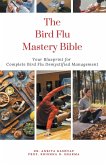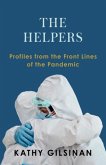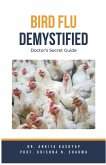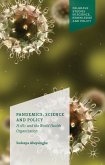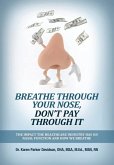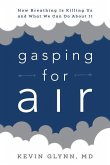In his sensible and entertaining style, Siegel looks at the advances we've made in treatments, the research still to be done, and the challenges ahead for Asia to lay out a realistic plan for ending this global threat. While a bird flu outbreak in the United States may or may not happen this year, there's still a great deal of work to be done in readying America for outbreaks of any kind.
"Dr. Marc Siegel's slim volume, 'Bird Flu: Everything You Need to Know About the Next Pandemic,' contends that the world's response to SARS was inappropriate panic fueled by self-serving bureaucrats, and that we should all cool our jets over bird flu until it's really and truly here.
Siegel, a practicing internist with a second career as a New York-based medical commentator, weaves in many useful and accurate facts about avian flu in the book that, by his own account, he raced to complete. ...[His] daily practice is peopled (as are those of many popular practitioners) with patients whose anxieties sometimes outstrip their common sense. For them, Siegel's book serves a purpose. Like the good doctor he no doubt is, he exhorts them to focus on what they can do now to protect their health: losing weight and stopping smoking, for starters, instead of staying awake at night over a threat that has not yet descended on humankind in a big way--and perhaps never will."
--Claire Panosian Dunavan is professor of medicine and infectious diseases at the David Geffen School of Medicine at UCLA and a frequent contributor to the Book Review and Health sections. (LA Time Book Review, March 18, 2006)
Siegel, a practicing internist with a second career as a New York-based medical commentator, weaves in many useful and accurate facts about avian flu in the book that, by his own account, he raced to complete. ...[His] daily practice is peopled (as are those of many popular practitioners) with patients whose anxieties sometimes outstrip their common sense. For them, Siegel's book serves a purpose. Like the good doctor he no doubt is, he exhorts them to focus on what they can do now to protect their health: losing weight and stopping smoking, for starters, instead of staying awake at night over a threat that has not yet descended on humankind in a big way--and perhaps never will."
--Claire Panosian Dunavan is professor of medicine and infectious diseases at the David Geffen School of Medicine at UCLA and a frequent contributor to the Book Review and Health sections. (LA Time Book Review, March 18, 2006)


